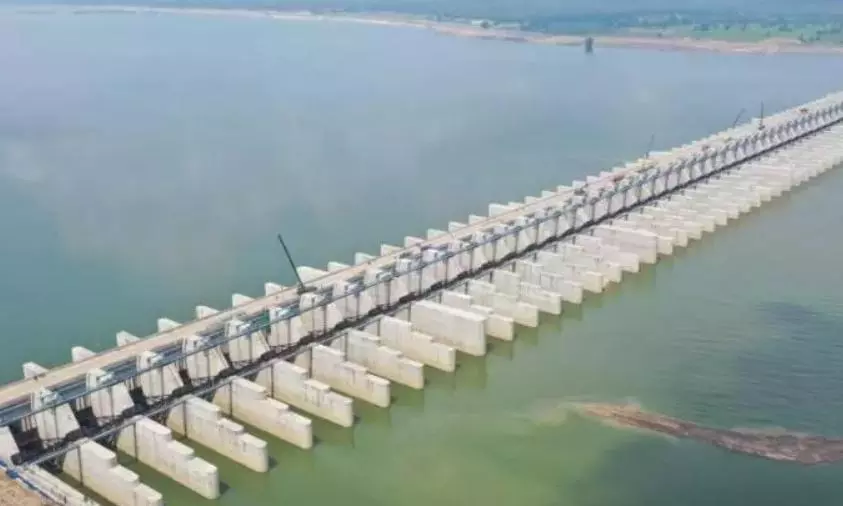Kaleshwaram Hearing: Probe Panel Tells Former KLIS Top Engineer Not to Lie

Hyderabad: The judicial probe into various aspects of the Kaleshwaram project took a dramatic turn on Saturday with Justice Pinaki Chandra Ghose cracking the whip on the project’s former engineer-in-chief (ENC), N Venkateswarulu, and warning him against lying to the commission during his deposition.
Justice Ghose made it clear that lying will not stand as the commission, by way of depositions by other irrigation department officials, was well-versed with various details. He said that action can be taken for not speaking facts under oath.
During a three-hour questioning of Venkateswarulu, Justice Ghose asked nearly 70 questions on various aspects of planning, design, and execution of the construction of Medigadda, Annaram, and Sundilla barrages.
It may be recalled that Venkateswarulu, who was the ENC for Kaleshwaram project barrages during their construction phase, was removed from service this February by the state government following an interim report submitted by the vigilance and enforcement wing regarding various omissions and commissions by some irrigation department officials.
On Saturday, the former senior irrigation official was caught while trying to evade direct replies to questions from Justice Ghose on the role of the Central Designs Organisation (CDO) of the irrigation and command area development department. On CDO’s role in deciding on what kind of piles were needed for Medigadda, and the other two barrages, Venkateswarulu replied that it suggested that either secant or any other suitable design, including cutoff walls, or Z shaped piles could be used.
When Justice Ghose asked if the CDO’s role was to provide designs and not options, Venkateswarulu could not provide a clear response, prompting Justice Ghose to make it clear that CDO officials, who had deposed earlier, had provided all the necessary information and evading a clear and direct reply will not stand, and lying to the commission could be punishable.
The evasiveness of the responses was recorded in the official records of the deposition, but Venkateswaralu was given the opportunity to study the documents and come back for further questioning as and when summoned. Justice Ghose made it clear that Saturday’s responses will stand in the record.
In a significant revelation, Venkateswarulu said that among the reasons for problems at Medigadda, and the other Kaleshwaram barrages, were the suppositions on which the designs were based, especially when it came to flood dissipation structures. He said the designs assumed constant presence of water in the ‘stilling basin’ right after the barrage on the downstream side, which was not the case on the field that resulted in flood dissipation structures getting washed away due to high ‘shooting velocities’ when water was let out through the gates.
He also said because of the need to pump water, water had to be stored at the barrages, and piping action under the foundations led to the partial sinking of block 7 of the Medigadda barrage.
On who took the decision about changing the location of the project from Tummidihatti to Medigadda, Venkateswarulu said that it was taken by the then Chief Minister after a cabinet decision. He also informed the commission that Annaram and Sundilla barrages were not built on the original sites selected by WAPCOS — Water and Power Consultancy Services (India) Limited — which was asked to prepare the detailed project report but were shifted to save on costs.
Elaborating on it, Venkateswarulu said that the location shifts were to reduce the cost of power for lifting of water, reduce the length of diversion channels between the barrages leading to the pump houses, and also reduce the extent of farmland that would be submerged and on the requirement of forest land.

